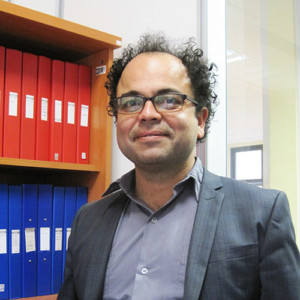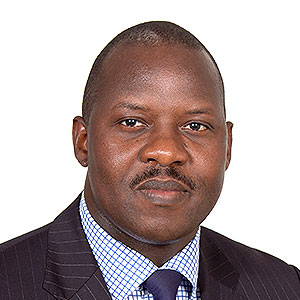Question 2: What actions should be made to ensure an adequate institutional and legal framework to govern metropolitan areas?
What actions should be made to ensure an adequate institutional and legal framework to govern metropolitan areas?
This discussion is now closed. Thank you for your participation.
Moderators:
-
 Claudio Torres Slum Upgrading Consultant, Housing and Slum Upgrading Branch. UN-Habitat
Claudio Torres Slum Upgrading Consultant, Housing and Slum Upgrading Branch. UN-Habitat -
 Pireh Otieno Human Settlements Officer, Urban Basic Services Branch - UN-Habitat
Pireh Otieno Human Settlements Officer, Urban Basic Services Branch - UN-Habitat -
 Kulwant Singh Regional Advisor - UN-Habitat
Kulwant Singh Regional Advisor - UN-Habitat -
 Marcus Mayr Urban Planner, Climate Change Planning Unit, UN-Habitat
Marcus Mayr Urban Planner, Climate Change Planning Unit, UN-Habitat -
 Edmundo Werna Head of Unit at Sectoral Policies Dept. ILO
Edmundo Werna Head of Unit at Sectoral Policies Dept. ILO
What actions should be made to ensure an adequate institutional and legal framework to govern metropolitan areas?
The Global Platform is advocating for a Habitat III outcome to embrace the Right to the City principles across four core domains:
Right to the City principles
- Protect, promote and implement the Right to the City in all Habitat III documents;
- Enshrine new paradigms for integrated planning and management in the New Urban Agenda;
- Ensure inclusive, democratic, secure and sustainable cities;
- Fulfill the social function of property by strengthening collective social, cultural and environmental interests over individual and economic interests;
- Incorporate the priorities, needs and experiences of citizens and communities, especially for women, the poor, the minorities and vulnerable groups, and the organizations supporting them.
- Produce an outcome document with specific and measurable results and commitments
- Ensure access to basic and social services, mobility, public and green spaces and the enjoyment of natural and built heritage.
- Produce an outcome document with specific and measurable commitments and results on the implementation of the various components of the Right to the city as well as of the new Sustainable Development Goals.
Role of local governments
- Ensure full participation of local governments in the Habitat III process with their role reflected in outcome documents;
- Recognize local governments as crucial actors in the Habitat III outcomes, requiring the means for effective public management and citizen participation, to preserve cities as commons;
- Recognize the central role and responsibility of local government in the promotion, protection and guarantee of human rights and the adoption of Human Rights Charters ;
- Recognize the right to a city constituted as a local political community that ensures adequate living conditions and peaceful coexistence between peoples and with government;
- Implement real decentralization with the necessary competencies and resources, to ensure that local governments can take effective decisions to fulfill inhabitants’ rights;
- Ensure that all city inhabitants have rights to participate in political and city management processes and create conditions for citizens empowerment;
In order to simultaneously address several metropolitan challenges and urban policy domains (for example related to urban food systems) requires the set-up of new organisational and multi-stakeholder structures that facilitate involvement of different government departments and jurisdictions in food planning. Such structures can ensure greater coherence and alignment and increase efficiency of the policies and programmes that have an impact on the food system (such as land use, green space management, food transport and marketing, waste management, environmental and health standards etc.).
For example, Bristol (UK) formed a Bristol Food Policy Council, modelling on precedents in North America, notably Toronto (Canada). With members drawn from a range of stakeholders including local food industry, City Council, universities and grass-root bodies it set out to develop a Good Food Plan with clear commitment and outcome indicators. Ghent and Rotterdam have set up similar multi-actor platforms and networks.
Involving stakeholders from public, private and civic sphere helps such partnerships and plans to be less vulnerable to political change. The long-term active presence of food policy forums in for example Amman (Jordan) or Nairobi (Kenya) can be attributed hereto.
The challenge lies in developing comprehensive food policies and strategies in city regions where different municipalities have to work together. This also requires collaboration at subnational (provincial level). Such collaboration will however also strengthen local and city region prominence in national, European and international lobby and dialogue on sustainable urban food systems.
In summary: Development of a resilient metropolitan/ city region food systems requires political will and use of available policy and planning instruments (infrastructure and logistics; public procurement; licences; land use planning); involvement of different government departments and jurisdictions (local and provincial) and new organisational structures at different scales (municipal, district, etc.). As integrated city region food strategies cross different policy domains, one of the key challenges is to organise the administrative and political responsibility for an urban food strategy. Cities around the world are responding with different options varying from a municipal department of food, food as the responsibility of the planning department or establishment of a food policy council (the latter done in cities like Toronto-Canada, Amman-Jordan, Belo Horizonte-Brazil and several others).
Thank you RUAF for the incredible contribution!
That discussion echoes some study done by the Food and Agricultural Organisation (FAO) in conjunction with University College London on ‘Pro-poor legal and institutional frameworks for urban and peri-urban agriculture’. It highlights that, supporting the most vulnerable groups in an urbanizing world demands discussions on food, agriculture and cities in the context of rural- urban linkages. The document shades light into this area of institutional and legal framework in urban development with strong advocacy pro-poor approach. More detailed descriptions could be read from this document by FAO.
Do we have/ or know of a general approach and/or actions that have been effectively used by some of the world’s metropolis that we can share with our colleagues across the world?
Welcome to the Online Consultations on Metropolitan Areas
Hello everybody, today we are launching the Habitat III Online Consultations on Metropolitan Areas. Comments generated by this e-discussion will contribute to the Montréal Declaration on Metropolitan Areas and the Habitat III process.
First, I would like to say that The Communauté métropolitaine de Montréal (The Montréal Metropolitan Community) is very proud to organize this international meeting in partnership with the Habitat III Secretariat. It’s a great opportunity to discuss metropolitan issues and highlight that metropolitan areas do have an important role to play in developing the “New Urban Agenda for the 21st Century”.
Established on January 2001, the Montréal Metropolitan Community (MMC) is a planning, co-ordinating and funding body serving the 82 municipalities of the Greater Montréal, which is home to almost 3.9 million inhabitants.
For this discussion, we invite you to sharing your point of view about the actions that should be made to ensure an adequate institutional and legal framework to govern metropolitan areas. In this regard, a significant number of States and Cities have understood the need to implement metropolitan-wide cooperative mechanisms. Around the world, metropolitan planning agencies in various forms have been created to ensure the efficiency of that coordination. What is the best way to promote these mechanisms and make it effective?

We emphasize the importance of city-region food systems as it was highlighted by RUAF. Sustainable development at a city-region level needs a national enabling environmentthat strengthens the municipal and regional level whilst simultaneously fostering interaction and cooperation between central, regional and local government. The New Urban Agenda should address enhancing capacities at the city level and provide effective financing mechanisms. It has to encourage the development of national urban policy frameworks. Coherent solutions need to be established that improve the quality of life in urban areas and their hinterlands.
The New Urban Agenda should position integrated spatial planning and management as a guiding principle for sustainable urban and regional development. Integrated urban development concepts should not include different levels of government (municipal, regional, national), but also different sectors and institutions, which often operate in “silos”, as well as different spatial levels (urban, peri-urban, rural). Isolated solutions and approaches must be avoided, trade-offs identified at an early stage of planning and synergies between sectors, governance levels and stakeholders fostered. Integrated spatial planning facilitates the balancing of interests and the finding of viable solutions. Strategies thus need to look at the entire metropolitan region in a holistic way.
The New Urban Agenda should establish effective monitoring, reporting and review mechanisms at the local, regional and national level. Where possible, it is advisable to streamline monitoring of the New Urban Agenda with the SDG process. The New Urban Agenda should not be a “blueprint for the city of the future” but rather provide guidelines for existing and growing small, medium, large and megacities so they can pursue their own development adapted to their specific economic, environmental, social and cultural context. The New Urban Agenda should be a universally applicable political, implementation-oriented document that motivates and mobilises member states and other relevant players to push for sustainable development at the local level.